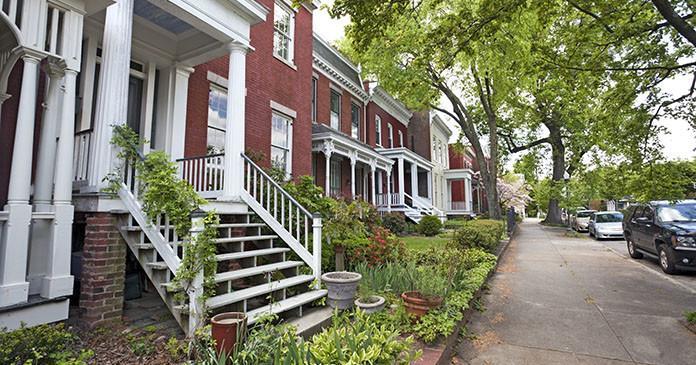U.S. Housing and Urban Development (HUD) Secretary Ben Carson today announced five communities across the country will receive a combined $144 million to redevelop severely distressed public or assisted housing and to revitalize surrounding neighborhoods. Provided through HUD’s Choice Neighborhoods Initiative, these grants, and the more than $1 billion they will stimulate from other sources, will transform long-struggling neighborhoods and distressed HUD-assisted housing.
Secretary Carson announced that the following communities are selected to receive Choice Neighborhoods grants to implement their neighborhood transformation plans:
| Fiscal Year 2017 Choice Neighborhoods Implementation Grants | ||
| Awardee(s)
|
Target Neighborhood | Amount |
| City of Baltimore, Maryland/Housing Authority of Baltimore City | Perkins, Somerset, and Oldtown Neighborhoods | $30,000,000 |
| City of Flint, Michigan/Flint Housing Commission | South Flint | $30,000,000 |
| City of Phoenix, Arizona | Edison-Eastlake Community | $30,000,000 |
| City of Shreveport, Louisiana/Housing Authority of the City of Shreveport | Allendale, Ledbetter Heights, and West Edge Neighborhoods | $24,214,284 |
| City of Tulsa, Oklahoma/Housing Authority of the City of Tulsa | Eugene Field Neighborhood | $30,000,000 |
Read more about these communities’ transformation plans.
“Choice Neighborhoods Grants are significant investments to transform struggling neighborhoods and improve living conditions for thousands of families,” said Secretary Carson. “The public dollars we award today will generate major investment to revitalize entire neighborhoods and create more opportunities for those who live there.”
HUD’s Choice Neighborhoods Initiative leverages significant public and private dollars to support locally driven strategies that address struggling neighborhoods with distressed public or HUD-assisted housing through a comprehensive approach to neighborhood transformation. Local leaders, residents, and stakeholders, such as public housing authorities, cities, schools, police, business owners, nonprofits, and private developers, come together to create and implement a plan that revitalizes distressed HUD housing and addresses the challenges in the surrounding neighborhood. The program helps communities transform neighborhoods by revitalizing severely distressed public and/or assisted housing and catalyzing critical improvements in the neighborhood, including vacant property, housing, businesses, services and schools.
Choice Neighborhoods is focused on three core goals:
- Housing: Replace distressed public and assisted housing with high-quality mixed-income housing that is well-managed and responsive to the needs of the surrounding neighborhood;
- People: Improve outcomes of households living in the target housing related to employment and income, health, and children’s education; and
- Neighborhood: Create the conditions necessary for public and private reinvestment in distressed neighborhoods to offer the kinds of amenities and assets, including safety, good schools, and commercial activity, that are important to families’ choices about their community.
The five awardees will replace 1,788 severely distressed public housing units with 3,800 new mixed-income, mixed-use housing units as part of an overall effort to revitalize neighborhoods. For every $1 in Choice Neighborhoods funding they receive, the awardees and their partners will leverage an additional $9.40 in public and private funding for their project proposals. Together, these five communities are leveraging an initial $1.35 billion through other public/private sources to magnify their impact.
Choice Neighborhoods builds on the successes of HUD’s HOPE VI Program, linking housing improvements with a wide variety of public services and neighborhood improvements to create neighborhoods of opportunity. Choice Neighborhoods is HUD’s signature place-based program, which supports innovative and inclusive strategies that bring public and private partners together to help break the cycle of intergenerational poverty.













